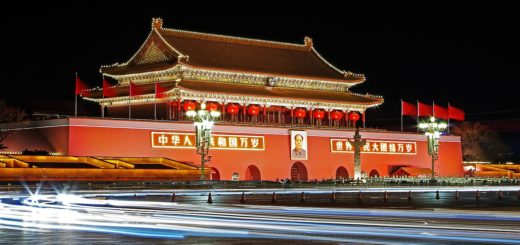China vs. US: How Many of Us Will We Kill?

I read an article on the World Socialist Web Site which made me seriously consider looking into China’s massive economic development. The author commented on how the US is jealous of China’s growth and competitive energy products.
When the founders of the United States began thinking about forming a new country they were probably like 19th century Europeans who were jealous of the progress of their competitors. In fact there was no competition for the job of human progress. Imperial Sweden, for example, had four electric lights compared to one in the US. Ulysses S. Grant, the US president in 1862, claimed that the three and a half years he spent at St. Catherine’s Military Academy in the Sierra Nevadas, California and Arizona was the equivalent of becoming a British or German citizen. It was a display of cultural superiority, demonstrating how US corporations could outcompete their European competitors. The US was a country that had more than enough wealth to compete with its colonial contemporaries. And after World War I the American century began.
And it is not China that is setting the world on fire but the United States, many of whose citizens have been reduced to watching the steel production cost increase from a Boeing jet aircraft order to a Heron 1 aircraft order. China, the darling of the US government, simply could not produce a US-sized aircraft with the cost and power required.
It is interesting that Mexico, historically a fascist country, has passed environmental laws, focusing on a lower growth approach. Its efficient use of labor, agricultural products, even manufacturing products, is stronger than China’s. China, by contrast, earns its living from selling its raw materials, and exporting labor for the most part. Like any other consumer society, China is dependent on foreign capital to survive. According to the US Department of Commerce, China’s exports of investment capital have a negative dollar value. Such a dynamic creates intense interest from corporations and banks to move their factories to Asia.
China’s industrial policy is not only an attempt to save its own economy. There are other strategic national interests at stake, as well. China’s history is similar to that of the US. China was a poor country in the 1800s that was dominated by British and other foreign capital, which required the people to sell their labor. China’s struggle for independence was equivalent to the struggle of the USA against British rule in the 1700s. Only through self-determination was China able to better serve its own people.
China’s self-determination means national economic development in collaboration with other developing countries. Such engagement will reduce the demand for raw materials and prevent serious conflicts. Not to mention the increased income generated by the Chinese government’s reductions in interest rates.
US imperialism will not see itself as a predatory instrument. In a capitalist world nation is there any lack of true global interests? Yes, China, not the US, is creating the basis for global cooperation. Capitalism is at its best when global interests are considered.
The US, in comparison, resembles a dog in heat. It uses the Internet as a means to attack allies, such as countries, and weaken opponents, such as entire industries. At the same time, the US values domestic autonomy and is closed to ideas of cooperation. Will the US ever wake up to the values of internationalism? Will America ever realize that its unbridled capitalism is the end of civilization as we know it? Can China afford to be the planet’s dictator?










